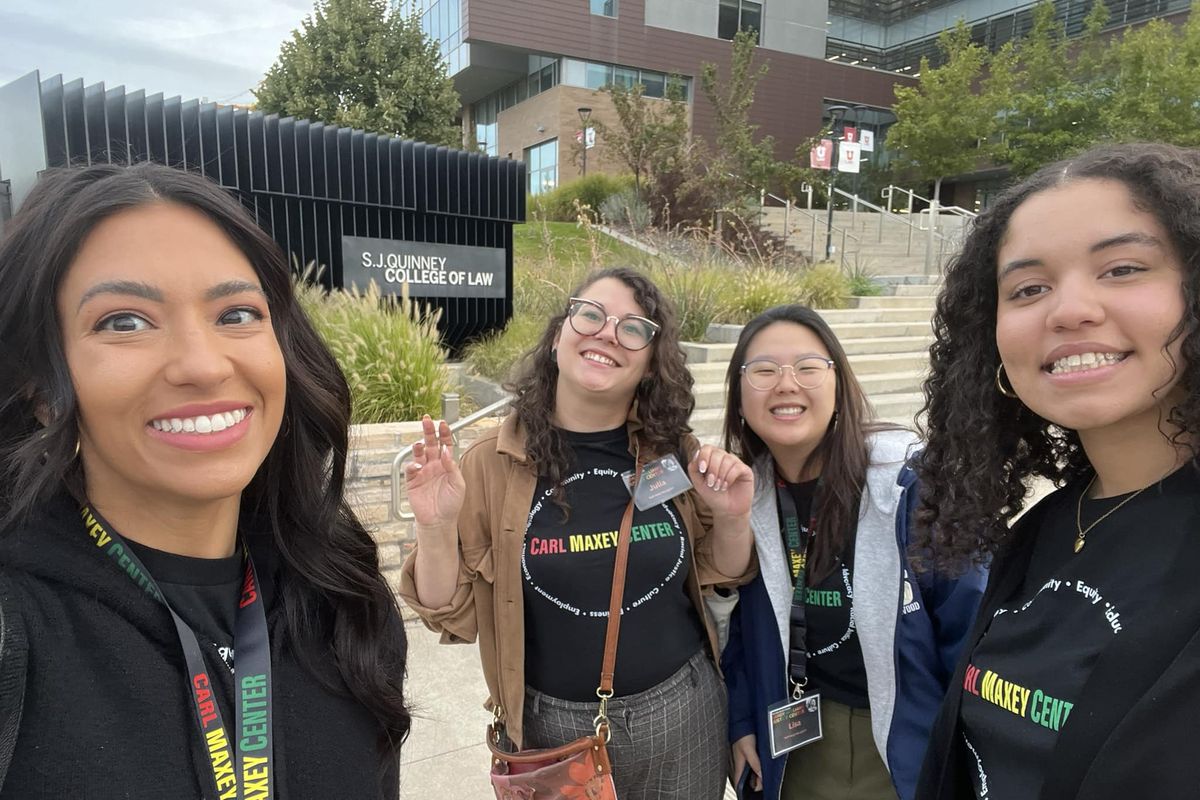The Carl Maxey Center recently supported Shayla Maxey (a limited license legal technician) and Julia Zaglin, a Gonzaga law student, in attending a legal clinic conference, where they gained valuable insights into the current state of access to justice, among other Spokane youth. I had the pleasure of speaking with Maxey and Zaglin to hear about their experiences and the key takeaways from the National Self Represented Litigants Conference in Salt Lake City.
Zaglin shared some eye-opening national statistics that illustrate the challenges in accessing legal services. According to Dean Elizabeth Kronk Warner of the S.J. Quinney College of Law, there is an estimated $4 billion gap in access to justice in the United States. Zaglin highlighted a 2017 study conducted by NORC at the University of Chicago, funded by the Legal Services Corporation (LSC), which found that 86% of civil legal problems reported by low-income Americans received inadequate or no legal help. This illustrates a significant gap in legal resources for the most vulnerable populations.
Zaglin also noted that some legal aid organizations are expanding their reach by providing free legal representation to individuals with household incomes up to 400% of the federal poverty level. Prior to the COVID-19 pandemic, this threshold covered around 130 million people, or approximately two out of every five individuals in the U.S. The Carl Maxey Center aims to bridge this gap locally by offering legal clinics to the community.
Maxey shared some powerful insights and memorable quotes from the conference that resonated deeply with her. One comparison particularly stood out: the experience of a layperson going to court was likened to playing a basketball game against LeBron James without a ball, shoes or an understanding of the rules. This metaphor highlights the inequities faced by individuals who navigate the legal system without legal representation.
She emphasized that “the court is not neutral when one side always has an attorney,” especially in cases involving housing or debt disputes, where the stakes are often high for those unable to afford legal counsel. Maxey was inspired by California’s proactive measures to address these issues, as the state has adopted a court rule mandating self-help centers and invested $31 million to support them. In California, each judge is assigned a self-help professional who can also assist with mediation, creating opportunities for dialogue between the courts and the community. This approach to court reform shows a promising model for making the legal system more accessible and fair for all.
The Carl Maxey Center’s upcoming legal clinic will continue these efforts, aiming to provide crucial support to those in need. Maxey’s and Zaglin’s experiences at the conference underscore the importance of advocating for equitable access to justice and the role that community-based organizations like the Carl Maxey Center play in closing the justice gap.
If anyone requires legal assistance, they are encouraged to attend the clinic or reach out to the center’s self-help team via email at selfhelplegal@carlmaxeycenter.org.
